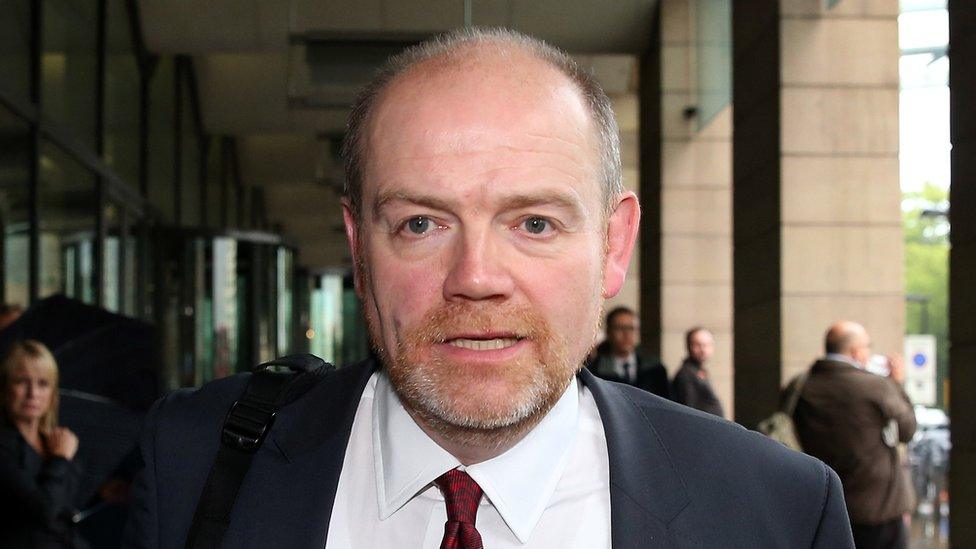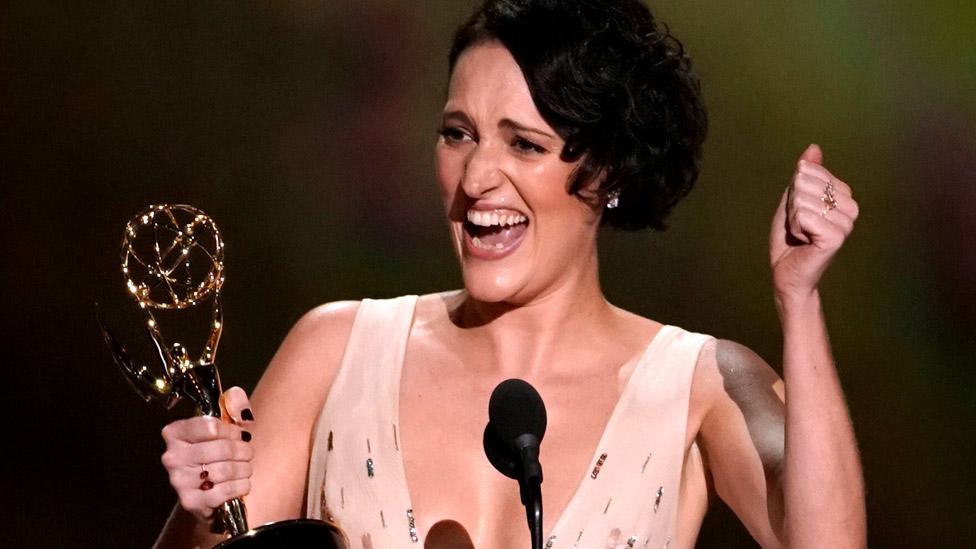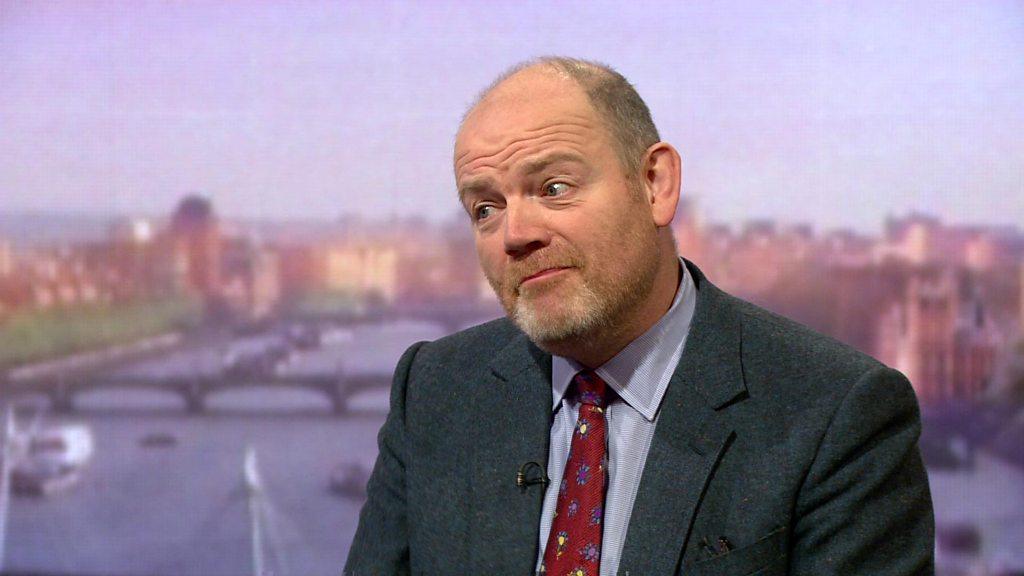Ex-BBC boss warns of threat to UK's 'cultural sovereignty'
- Published

Mark Thompson left he BBC for the New York Times in 2012
Ex-BBC director general Mark Thompson has warned that British "cultural sovereignty" is under threat from global digital giants like Netflix.
The dominance of US platforms means UK audiences may lose out on "great news, drama, comedy, documentary made first and foremost for them", he said.
"No one wants to see the UK turn into a cultural Airstrip One.
"But with newspapers struggling and broadcasters outgunned, it's a clear and present danger."
'Losing control'
Mr Thompson, who was director general from 2004-2012, delivered the Steve Hewlett memorial lecture, named after the late BBC presenter, in London on Tuesday.
"British creators make first-class programmes for Netflix, Amazon and the other American streamers, but there's a crucial difference between producing great content to fit someone else's creative agenda, and commissioning and controlling it yourself," he said.
"It's the commissioners who decide what gets made - and reap most of the economic upside."
While US streaming services currently co-produce some shows with British broadcasters, that won't last, he predicted.
'Financial firepower'
"Soon they'll want it all. Given the struggle that is now gaining momentum - they'll probably need it all too.
"Conventional broadcasters - and I include conventional cable and satellite players - who do not have a compelling pure-play digital strategy of their own risk being priced out of the best talent and best content. Even in their heyday, they'd have struggled to compete with these giants.
"Now with ad revenue - and in the case of the BBC, licence-fee - squeezed, their financial firepower is waning."
His speech coincided with an announcement that Fleabag and Killing Eve creator Phoebe Waller-Bridge had signed an exclusive deal with Amazon worth a reported $20m (£16m) a year.
The UK government's media "needs a fundamental change in direction" in order to protect British voices, he argued.
"It's specifically to ensure that - alongside all the other content, great or otherwise, that they consume - the British public can still find news, drama, comedy, documentary and arts content which is commissioned out of and whose principal mission is to speak directly to this culture, these communities, these ways of life."
Mr Thompson left the BBC in 2012 to become chief executive of the New York Times.
He told the audience: "A society which fails to provide its different communities and groups with the means to listen and come to understand each other's pasts and presents shouldn't be surprised if mutual incomprehension and division are the consequence."

Follow us on Facebook, external, or on Twitter @BBCNewsEnts, external. If you have a story suggestion email entertainment.news@bbc.co.uk, external.
- Published23 September 2019

- Published23 September 2019

- Published19 March 2017
